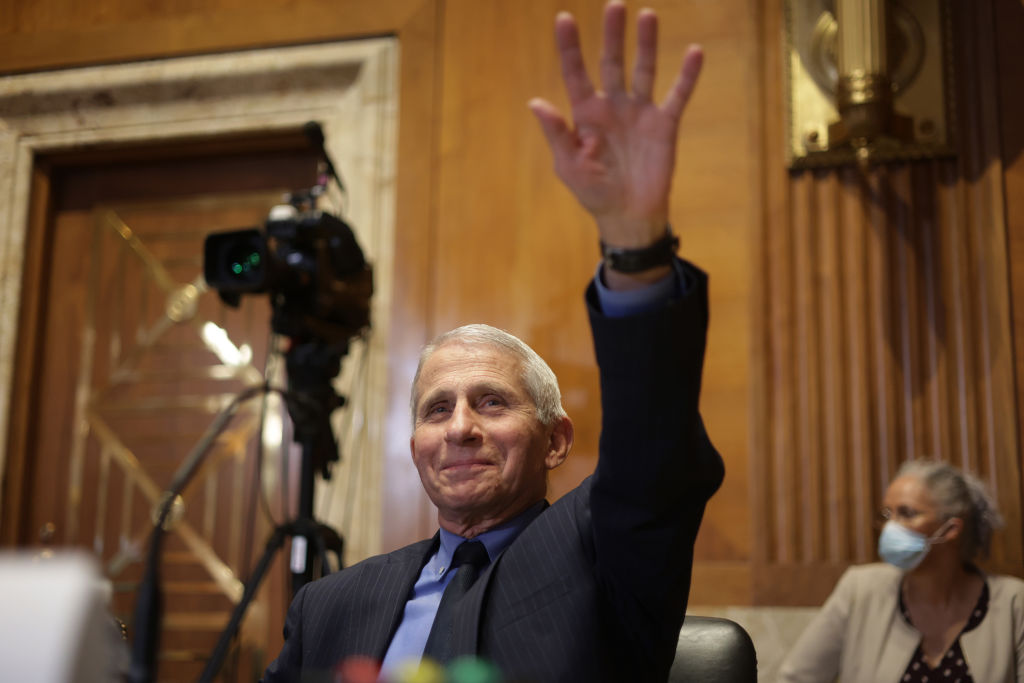When the American Dream is a ‘dog whistle’
High on the list of reasons why American politics feels so bad-blooded, chaotic and dysfunctional is the determination of many members of the media to paint the normal and harmless as unprecedented and dangerous.
For the latest example of this pathology, look no further than the front page of yesterday’s New York Times, where prime real estate was afforded to an article explaining that “In US politics, even the phrase ‘The American Dream’ divides.”
The starting point for the story, by national politics reporter Jazmine Ulloa, is the large number of unorthodox Republican candidates for office this cycle, many of them Latinos and many of them, as the story puts it, with “powerful come-from-behind stories.”
As you might expect, the likes of Juan Ciscomani, a Republican running for Congress in Arizona who “washed cars to help his Mexican immigrant father pay the bills”, and Winsome Earle-Sears, the Jamaican-born former Marine who was elected lieutenant governor of Virginia last year, are fond of invoking the American Dream. An entirely benign development, you might think. Not according to the Times, which reports that “historians and other scholars warn that some Republicans are distorting a defining American idea and turning it into an exclusionary political message.” The story then approvingly quotes a Fordham University professor’s claim that the American Dream is being used by Republicans as a “dog whistle.”
The Republicans’ crime seems to be that they are anything other than entirely positive about the American Dream, “arguing in speeches, ads and mailings that the American dream is in danger or dying.” This is, inevitably, presented as a dark and unprecedented development. In truth, it is nothing of the sort: the American dream has alway been a contested and politicized idea. One party complaining about the ways in which the other has jeopardized the American Dream is a perfectly banal development.
Note the double standard: the newspaper that has spent recent years attacking and undermining some of the core principles that undergird American democracy via the 1619 Project will tolerate nothing other than sunny optimism from Republicans — especially non-white Republicans — on the very same civic pillars it has been chipping away at.
I am loath to waste your time detailing the missteps of the New York Times — there are plenty of other people keeping an eye on the Grey Lady — but, on a quiet Monday in August, the framing of this story about non-white Republican candidates seems an especially revealing case study in the chronic inability of the contemporary left to accept anything about today’s GOP as, well, normal.
*** Sign up to receive the DC Diary in your inbox here ***
Who’s worried about ‘threats to democracy?’
The latest NBC poll suggests a big change in the political weather. “Threats to democracy” was chosen by 21 percent of voters as the most important issue facing the country. It tops the list, ahead of the cost of living (16 percent), jobs and the economy (14 percent) and immigration (13 percent).
In some corners, the takeaway seems to be reasonably clear. On yesterday’s Meet the Press, Chuck Todd described the prominence of “threats to democracy” as a “potential advantage for Democrats” ahead of the midterms. This morning’s Politico Playbook cites the poll as one reason for growing Democratic optimism. According to this view, the Mar-a-Lago raid, January 6 testimony and the triumph of election-denier candidates in Republican primaries have all helped give Democrats an advantage.
But might this punditry be overstating things a little? One complicating factor that too few acknowledge: the Republican voters also worried about “threats to democracy” but for very different reasons. There is scant acknowledgment that the slice of voters who identified this issue as a top concern likely did so for very different — often diametrically opposed — reasons. Some are worried about Trump, others are worried about the investigations into Trump. But the NBC poll doesn’t tease these divisions out — and so those who see the NBC poll as pointing to a strategy focused on the former president and the Democrats’ democracy agenda are liable to get carried away.
Arrivederci, Fauci
Anthony Fauci has announced that he will leave government in December. Those hoping this means they will soon have seen the last of Dr. Fauci will be disappointed to learn that he is simply leaving to “pursue the next chapter” of his career. He insists that he will “not be retiring in the classic sense.” The ever-modest doctor said that “so long as I’m healthy, which I am, and energetic, which I am, and I’m passionate, which I am, I want to do some things outside the realm of the federal government.”
Hudson Valley bellwether
New Yorkers head to the polls tomorrow. Understandably, a great deal of attention is focused on the blockbuster Upper West Side versus Upper East Side showdown between Jerry Nadler and Carolyn Maloney. (Young attorney Suraj Patel hopes to spoil the party for both Maloney and Nadler, pitching himself as a youthful alternative to the dusty incumbents.) But this bitter Manhattan fight won’t tell us much about the national mood.
For that, look instead to the special election in NY-19, where Hudson Valley voters must select a replacement for Antonio Delgado, who is now the state’s lieutenant governor. New boundaries make it a +5 Biden district, but they don’t come into effect until November. For now, this +2 Biden seat will be a crucial bellwether ahead of the midterms. The contest, between two popular locals, Democrat Pat Ryan and Republican Marc Molinaro was, until recently, seen as a very likely Republican pick-up. Now it promises to be a close run thing. If the Democrats hold onto the seat, expect Republicans’ November nervousness to intensify.
What you should be reading today
Teresa Mull: DeSantis has started his presidential campaign tour
Ben Domenech: Mitch McConnell isn’t going anywhere
Jesse Singal: The trouble with Tavistock
Jack Butler, National Review: Biden’s historians hurt America
Mary Ilyushina, Washington Post: A Russian soldier’s journal says, ‘I will not participate in this madness’
Derek Robertson, Politico: Wow, politicians are really bad at podcasting
Poll watch
President Biden job approval
Approve: 40.9 percent
Disapprove: 55.8 percent
Net approval: -14.9 (RCP Average)
Do Americans think that the United States is in a recession or not?
Yes, in a recession: 68 percent
No, not in a recession: 27 percent
Not sure: 5 percent (NBC/Hart)


















